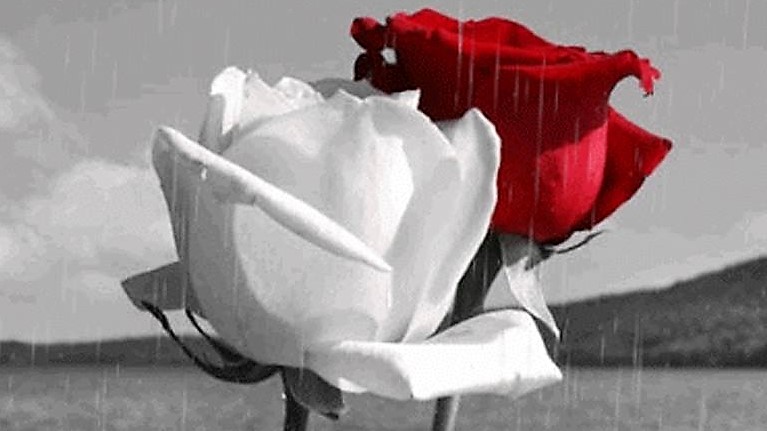

The patient reader will come out of the novel both damned and damning
𝗧𝗜𝗠𝗘𝗦 𝗢𝗙 𝗗𝗘𝗔𝗧𝗛 𝗔𝗡𝗗 𝗥𝗢𝗦𝗘𝗦 𝗔 𝗡𝗢𝗩𝗘𝗟 𝗕𝗬 𝗔𝗗𝗘𝗟 𝗕𝗜𝗦𝗛𝗧𝗔𝗪𝗜
Reviewed by Iraqi Writer and Critic Ismael Zayer
Times of Death and Roses by Palestinian novelist A. S. Bishtawi appears an extremely neutral title for a novel. It is a title that refers to things that have already been accomplished by time. But the neutrality was imperative to overcome the hardships of remembrance or the reconstruction of events discussed by the novel. The fire of these events is not dead yet. There is a layer of ash covering the body off time but it does not conceal any part of it.
The work spreading over 550 pages removes that layer and beats the bodies of the dead and vanquished to rise with their testimonies, their hardships and the loss they suffered over generations. It was not easy for Bishtawi to send back to the caves of death the souls he has awaken without giving them the chance to speak out, and to rearrange the facts that led to the death and defeat of an entire generation that lost both dream and life as a result of the incessant savageness of the 1970s and 1980s.
The patient reader will come out of the novel both damned and damning in a way similar to that felt by the characters of the novel themselves. In them we find parts off our bodies and memory scattered over the past and the future. Patience, however, is not an ingredient that Bishtawi wants as he leaves behind the purgatory of Beirut in one of its most heated and violent stages.
Both the victim and the murder were given a chance to say what they wanted to say about those times. Bishtawi leads us through his novel to the portal of forgetfulness but from a back entrance. “Nothing speeds up forgetfulness like remembrance”, he says. (P 25). From the portal of forgetfulness there enters Ali, the vanquished hero of his novel, to the garden of forgetfulness. It is up to us to forget, but not everything than can be remembered can be forgotten.
Bishtawi’s work belongs to his experience in life rather than to a specific style or a fictional trend or even to narrative mould. The novel’s time-frame is constructed in sucha way that sheds light on its characters, and unfolds the cataractal chain of thought to become, in its own space and atmosphere, an earthly substance that translates and edges on the entities that stand in its way.
Times of Death and Roses is about the experience of revolutionaries who dedicated their life to the Palestinian revolution in an absolute soul-cleansing value but soon enough the normal human dimension of such sacrifice surfaces in all its details, protrusions and diversions that extend over a wide horizon encompassing outstanding courage and baseless cowardice, treachery and degradation. Events circle around in times that storm out through the characters moulding the general human scene, and pushes to the violent surface of lake the remains left behind by massacres, violations and the spiritual and psychological ruin dumped by the regional circumstances on our generations.
Ali, the central character of the novel, crosses the red lines separating commitment (to his Palestinian cause) and rebellion, and deep belief and heresy. The only responsibility remaining is the responsibility of the individual to himself. The novel specifically is shadowed by the Massacre of the mainly two Palestinian camps of Sabra and Shatila in Beirut. The Palestinians were attacked by Lebanese militiamen with the help of the Israeli army who had invaded Lebanon in 1982. The novel also is about the events that led to the massacre and the deep wounds it inflicted on the Palestinians.
Ali’s dilemma, like all other educated young men, is manifested in his increased awareness of his marginality, and the marginality of a whole generation. It is also manifested in his shock and anger at the realisation that he had got accustomed to his marginality and accepted the new fact that the margin has become “the biggest country of the world”. This marginlisation is more painful than his frustration and disappointment due to the failure of his personal political experience. It means that he was defeated twice: The first against death, and the second against evil. In these circumstances the loss of the battle against death came as a matter of course without any justification, or ethical value.
The frustration was the nature of Ali’s times, but it was doubly bitter for this “retired” Palestinian commander as he crawls to encircle the human life that lost its initial innocence during the revolution and because of it. This crawling is both inward and outward and it continues because the poisoning of the future of those who tried to escape the poisoning doesn’t stop. There is no escape for such future. Like a satanic spirit, it haunts its victims and chases them wherever they go. The movement from the times of death to the times of roses is nothing but a deceptive space that separates hope from illusion, and certainty from doubt.
We may not be wrong to say that Bishtawi’s novel is one of the rare attempts in modern Arab literature that dares to embody an experience shrouded in various taboos and apprehensions. An entire generation of Palestinian revolutionaries and Lebanese people have gone through such an experience beginning from the Lebanese civil war and ending at the evacuation of the POL (Palestine Liberation Organisation) from Beirut following the Israeli invasion in 1982. This experience is summoned in the novel in a high standard literary narrative and with all its cons and pros. Bishtawi portrays the atmosphere of explosions, booby-trapped cars that explode at random amongst civilians, arbitrary shelling and death that seems to be even more arbitrary.
The writer does not only move us through one level of that experience but also to the depth of the “revolutionary abyss” where bitterness and corruption govern the relation between the fighter and his leadership. The language, though, is the language of that particular time. It carries its expressions and vulgarities as much as it carries its ideas and lofty values.
The stumbling of the human expression in that context is a mirror of the stumbling of the political action and the revolution itself. The overwhelming dominance of catastrophe is evident. It is where “sleep becomes an exhausting experience, walking up even more so and the mere continuation of life a miracle”.
The Other Side of the Spectrum
On the other side of the spectrum there is Rana- the Lebanese Christian Ali knew and kept in his memory as she grows into a sensual beautiful young woman. Ali squanders the chance of falling in love with Rana in the distant time but another chance makes itself available to him. Rana, like Ali, finds herself leaving the first round of time psychologically scarred. The disaster hits her as hard as it hits Ali although both go through it in two different, separate and confronting camps. Rana’s choices, whether as a human being or a woman, may seem infinite, but such choices disappear when she reaches for the future to find nothing but void.
Ali and Rana meet again in another place where guns and shells have fell silent. It is far away from the scene of battle in Beirut where the only times available are the times of death, so a warm social horizon opens itself for them only to discover that although they were far away from the wars of Lebanon, their internal satans have not concluded their wars yet. Both discover that the only way left for human beings to follow is the road leading to hell through the devil.
The price paid by Rana to free herself from the grip of the devil was high enough to almost cause her the destruction of her renewed budding love for Ali. Ali, on the other hand, is no longer capable of losing Rana again, but he fails nevertheless in unifying them together in the other times-the times of love.
As for the objectivity of the text of the novel, we may conclude that the language used is solidly constructed and heavy with poetic colour particularly when it comes to expressing symbols and contemplation. The language is like a bridge that takes us across the freed emotions that had escaped their long imprisonment. It leads us to the next scene as waves move water only to extinguish its desire in the second wave. Following a violent uprising, the language moves into narration, both deep and pensive, without losing the heat of the content.
Despite that fact that political and historical evens are cohesively intertwined with the general fabric of the novel, they do still take up a large volume of the novel. Such treatment brings into memory the experiences of several novelists who used this technique in the past as a type of literary expression to justify the unfolding of ideas and contemplations not easily contained in other techniques, or go contrary to the conditions of the publishers and the local reading scene. Still, Bishtawi succeeded in giving the reader the chance to enjoy the circumstances of an impossible love between two human beings separated by a war almost of destiny nature.
Along with the sweetness come the subjects discussed by Bishtawi and place us face to face with the difficult conditions of human existence. Moreover, he shocks us more than once into leaving the niche of our content illusions about the revolution and the false glories to return to earth. The novel also is about the human brotherhood despite its difficult prerequisites and high price.
This review was published by Al Sharq Al Awsat Newspaper of London. D-T-R-00-20-03-04
Image credit: Sonia D., private share